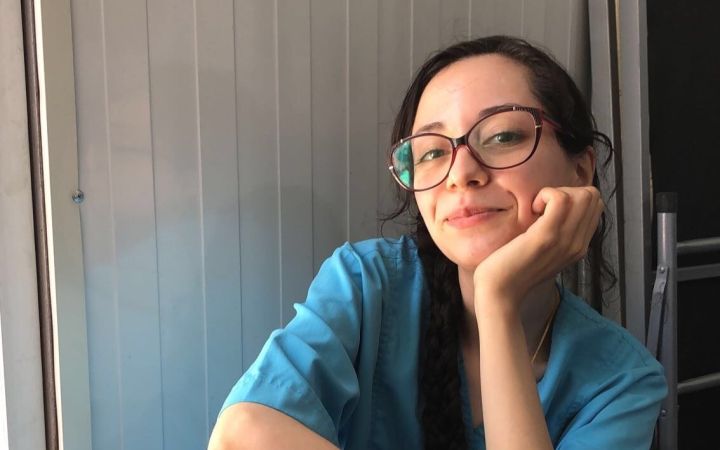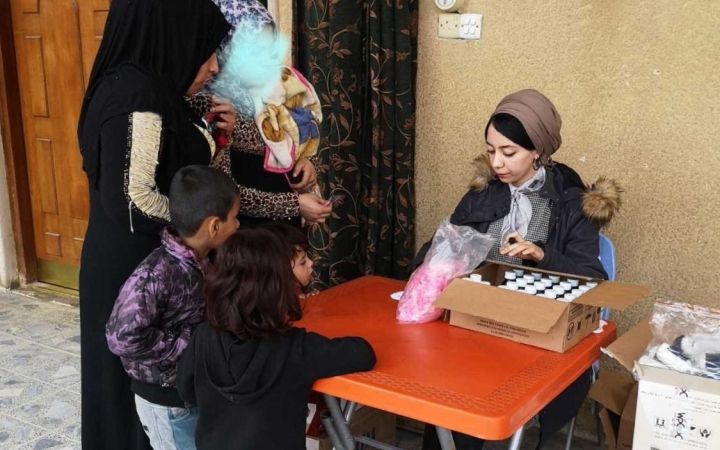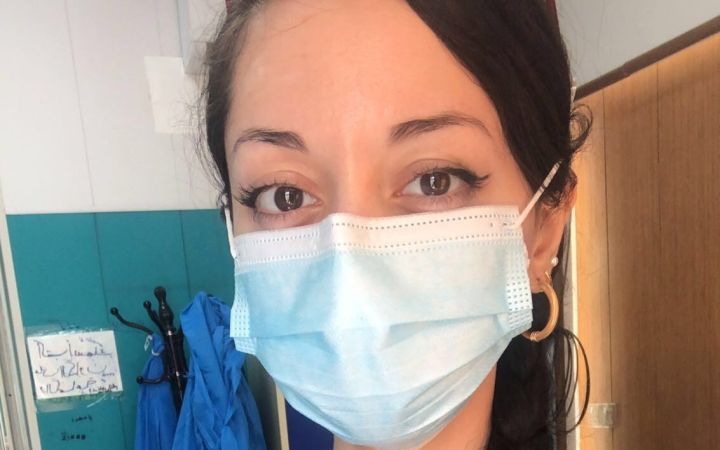September 2021 - Mental health receives little attention in Iraq, but Zahraa Al-Sarraf believes it is critical for the country’s post-pandemic recovery. Using a mindset that she developed through UNITAR’s Division for Prosperity Iraq Entrepreneurship Programme, Zahraa is providing mental health support to internally displaced people in Iraq and working to bring government attention to mental health in Iraq by developing policy.
A graduate of Baghdad College in Medical Sciences and fellow at the Milken Institute School of Public Health at George Washington University, Zahraa works as a pharmacist for the Ministry of Health in Iraq and for Doctors without Borders to support the Iraqi people during the COVID-19 pandemic.
However, Zahraa believes her most important work is providing mental health support to internally displaced people, specifically an Iraqi Christian minority that have been the target of ISIS attacks in the country.
“When ISIS pulled back from this region, the people who were already displaced from their homes could not return, as [their homes] were destroyed. And COVID-19 exacerbated the already heavy burden on their mental health.”
Together with a psychiatrist and a group of medical students trained on mental health, Zahraa assists the internally displaced by providing mental health services and advice. She hopes to identify all possible options for her patients, while using her experience to develop policy to eventually submit to Iraq’s national government. “They always say: ‘Shoot for the moon; even if you miss you will land among the stars’,” she laughs.
In 2020 Zahraa took part in the UNITAR COVID-19 Response and Recovery Programme: Mobilising Resilient Entrepreneurs to Address Food Insecurity, Public Health and Unemployment - For Youth in Iraq Programme and is now serving as a coach for the 2021 round. She credits the UNITAR programme for changing her mentality and giving her the tools to realize her aspirations.
She was especially struck by the words of Linda A. Hill, Harvard professor and a resource person for the programme. “Professor Hill stated in her talk that there are often two options in work and life: ‘What we should do,’ which is what is already assigned or delegated to us, and the ‘What we could do,’ to innovate and create excellence.”
This lesson sticks with Zahraa even today. She uses that question – “What could we do?” – to drive her actions and activities to reach as many people as possible. “Often when patients come from other hospitals, some start off complaining about what the previous facility should have done, but I make sure that we focus on what I can do for them in that moment,” she says.
Zahraa believes that mental health is fundamental for people to thrive and must be prioritized moving forward.
“Mental health options and facilities need to be available to everyone, so we can all properly recover after this pandemic. It needs to be on the national recovery agenda, because just as you cannot pour from an empty cup, you cannot help or add value to your work if you are damaged or destroyed.”
With the conviction that mental health in Iraq needs to be given more attention, from the government as well as society, Zahraa will continue to push the importance of mental health, both locally and at the state-level.
Zahraa Al-Sarraf is a former participant and current coach of the UNITAR Division for Prosperity Iraq Entrepreneurship Programme.




